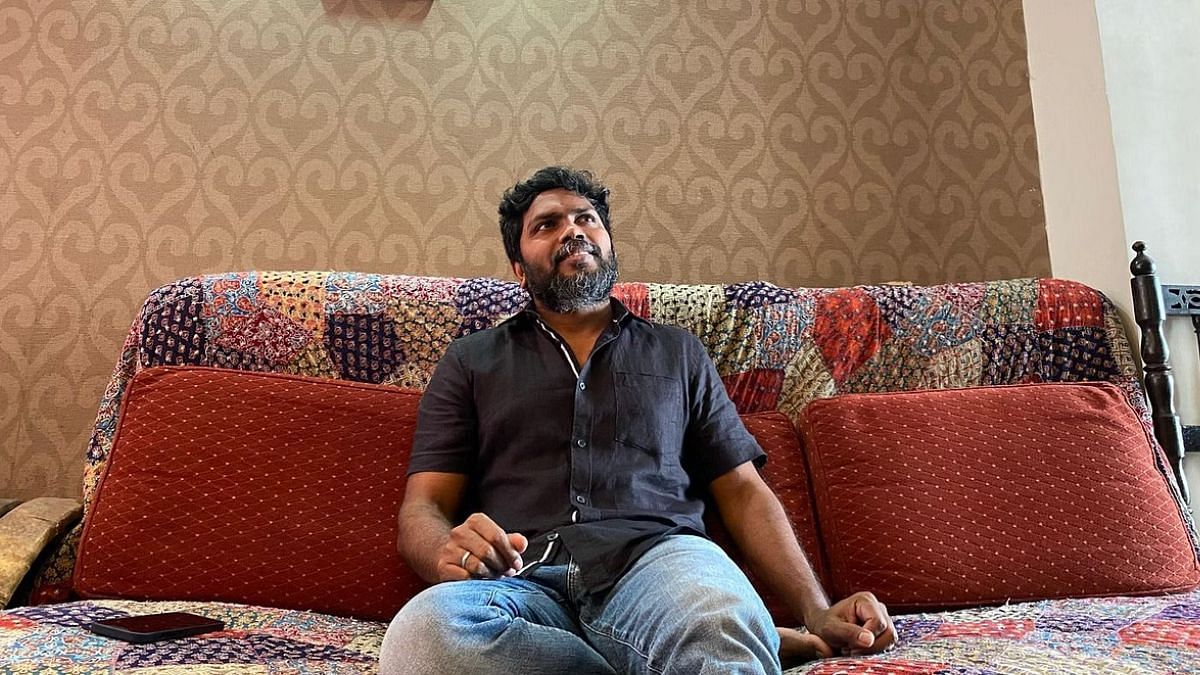Asked about the veteran actor Rajinikanth attending the Ayodhya ceremony, Ranjith says it was a matter of personal choice, adding that he did not support Rajinikanth’s views on the Ram Mandir issue.
Ranjith had collaborated with the superstar for the movies Kabali (2016) and Kaala (2018).
Talking to reporters in Chennai while leaving for Ayodhya, Rajnikanth had said Sunday that the Ram Mandir had been built in Ayodhya after the top court resolved the “500-year-old” issue, referring to the Babri Masjid-Ram Janmabhoomi title dispute.
The actor, who attended the event with his wife, son-in-law actor Dhanush, and grandchildren, also expressed pleasure about attending the consecration ceremony.
The Ayodhya ceremony was also attended by Bollywood actors such as Amitabh Bachchan, Ranbir Kapoor and Alia Bhatt.
Interestingly, many celebrities from the Malayalam film industry including actors Parvathy Thiruvothu, Rima Kallingal, Kani Kusruti and directors Aashiq Abu and Jeo Baby shared the preamble of the Constitution during the Ayodhya ceremony.
Also Read: Birthplace of AIADMK, gave 6 CMs — why southern Tamil Nadu is crucial to state’s politics
Known for making political statements
Ranjith, a member of the Dalit community, is known for his association with films that revolve around the issue of caste and the uplift of the underprivileged.
Some of his hits include Madras (2014), which portrays life in north Madras, a period sports-action film Sarpatta Parambarai (2021) which talked about local boxing culture and its politics in Chennai in the 1970s, and Natchathiram Nagargiradhu (2022), a romantic drama with strong comments on caste and gender.
Apart from directing, Ranjith has also produced popular movies such as Pariyerum Perumal (2018) and Writer (2021).
The director who has never shied away from making political statements had also supported Tamil Nadu sports minister Udhayanidhi Stalin during the Sanatana Dharma row last year.
In a social media post, he had written: “Minister Udhayanidhi Stalin’s statement calling for the abolishment of Sanatana Dharma has been the core principle of the anti-caste movement for centuries. The roots of inhumane practices in the name of caste and gender lie in the Sanatana Dharma. Revolutionary leader Dr Babasaheb Ambedkar, and anti-caste reformers such as Iyothee Thass Pandithar, Thantai Periyar, Mahatma Phule, and Sant Ravidas have all advocated the same in their anti-caste ideology.”
“The malignant attitude of distorting the minister’s statement and misappropriating it as a call for genocide is unacceptable. The growing hate and hunt for the minister is very disturbing. I stand in support of Udhayanidhi’s words calling for the eradication of Sanatana Dharma to establish a society with social justice and equality,” he had added.
At the time, Tamil Nadu BJP chief K. Annamalai had accused Udhayanidhi of “calling for genocide of 80 percent population of Bharat, who follow Sanatana Dharma”.
Loaded comments
Blue Star has been produced by Ranjith under Neelam Productions and is directed by debutant S. Jayakumar. The sports drama, set to hit the theatres on 25 January, stars Ashok Selvan, Shanthanu, and Keerthi Pandian, among other actors.
The audio launch of the film coincided with the pran pratishtha ceremony of Ram Lalla in the Ayodhya temple Monday and also grabbed attention as actress Pandian made comments on the political significance of the day.
Talking about the importance of politics in movies, she said it was part of daily life and not talking about it showed ignorance.
The actor, who has previously appeared in movies such as Kannagi (2023) and Anbirkiniyal (2021), said: “I consider it important that the music launch of Blue Star is happening today. I would like to mention the lyrics of the song Arakkonam Style in the movie — kalu mele kallu podu ravanakulame, Mele erum kaalu aachu eriyaaganume (cross your legs and sit, you belong to the clan of Ravana. It’s time you rise, do it right away).”
In the Ramayana, Ravana is the demon king of Lanka and the chief antagonist against the Hindu deity Ram.
In the early 20th century, Periyar, known as the father of the Dravidian movement, had in his writings alleged that the epic forces Aryan supremacy over the Dravidians (signifying the ancestry of north and south Indians, respectively), referring to the victory of Ram over Ravana. The narrative is also used in anti-caste discourses to assert Dalit identity.
Dravidian ideology calls for dismantling of Brahminical authority, eradication of the caste system, revitalisation of the Dravidian languages (Telugu, Kannada, Malayalam and Tamil), social reform and equality for women.
(Edited by Nida Fatima Siddiqui)
Also read: Ayodhya is selling like ‘hot cakes’. SOTC, Thomas Cook, MakeMyTrip cashing in

